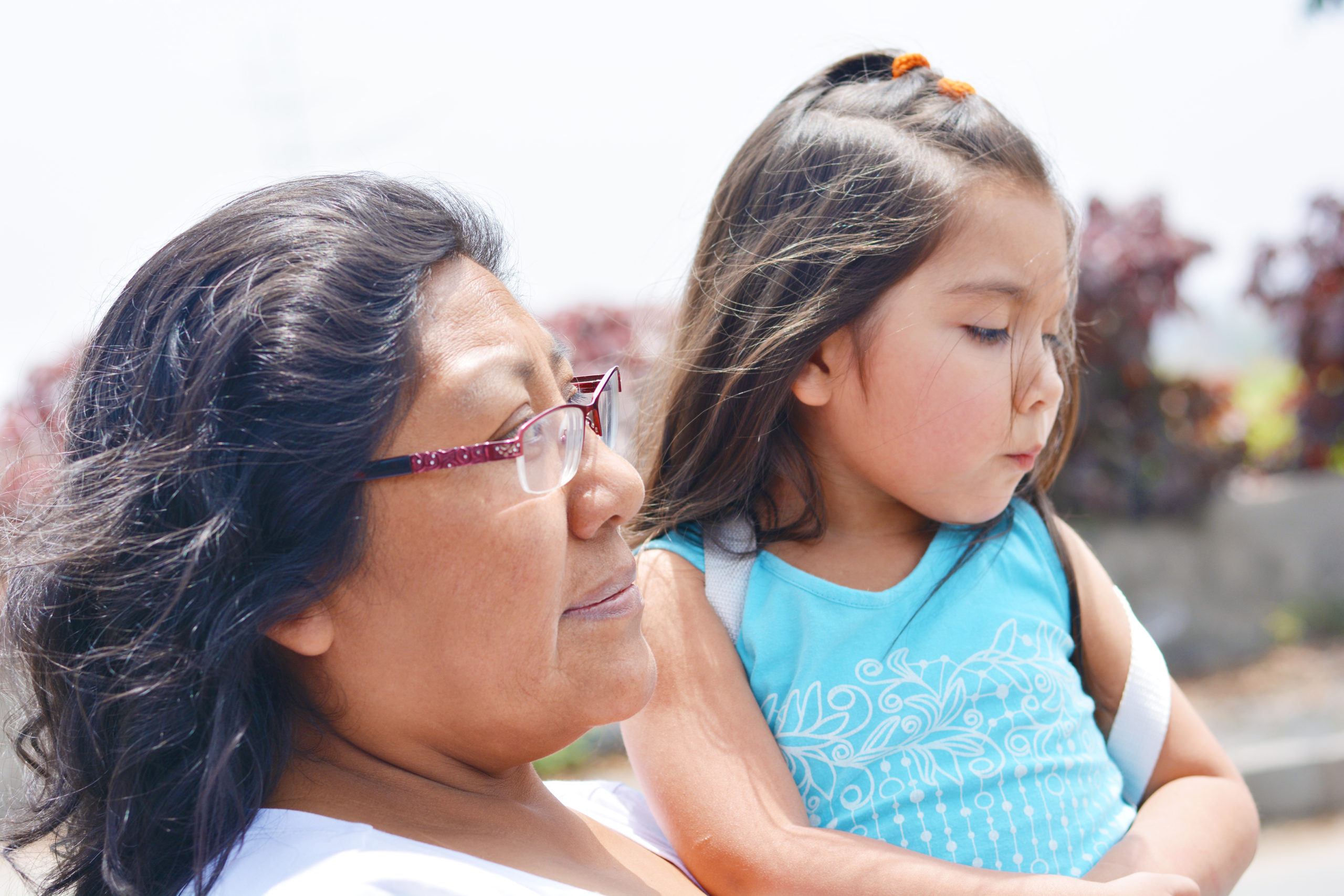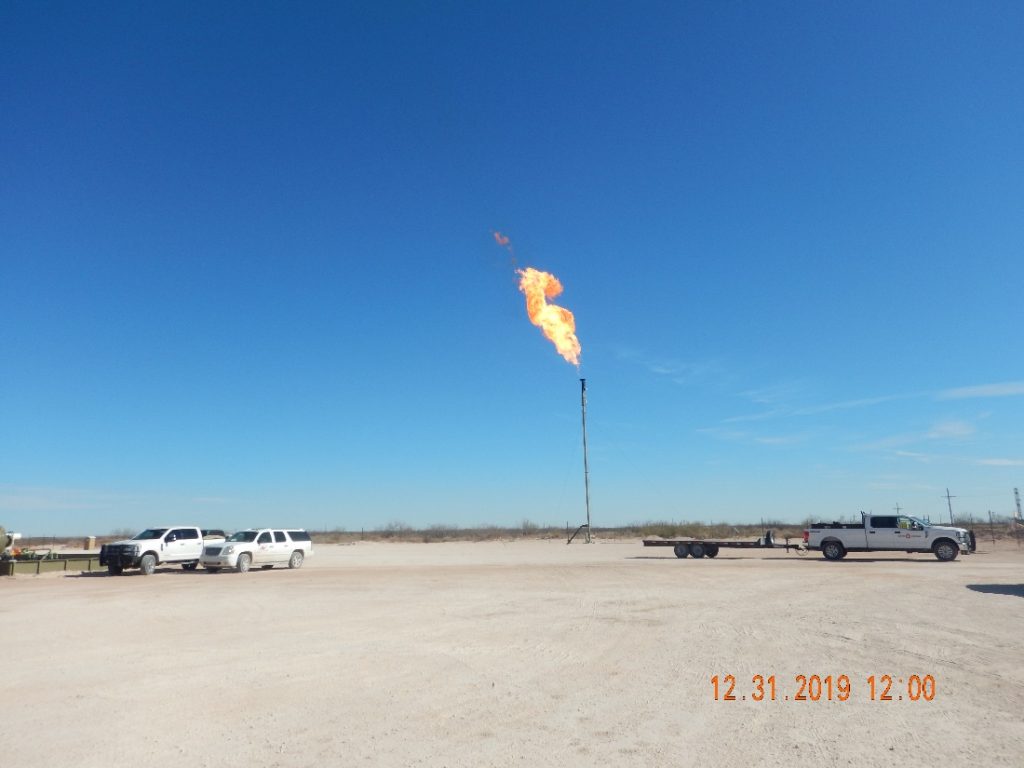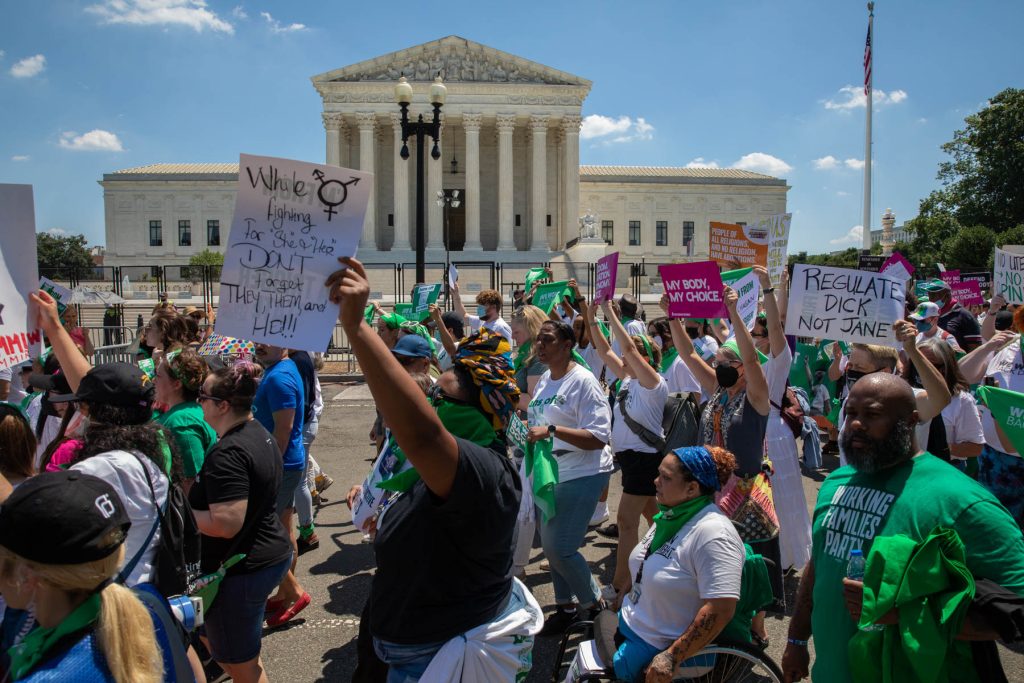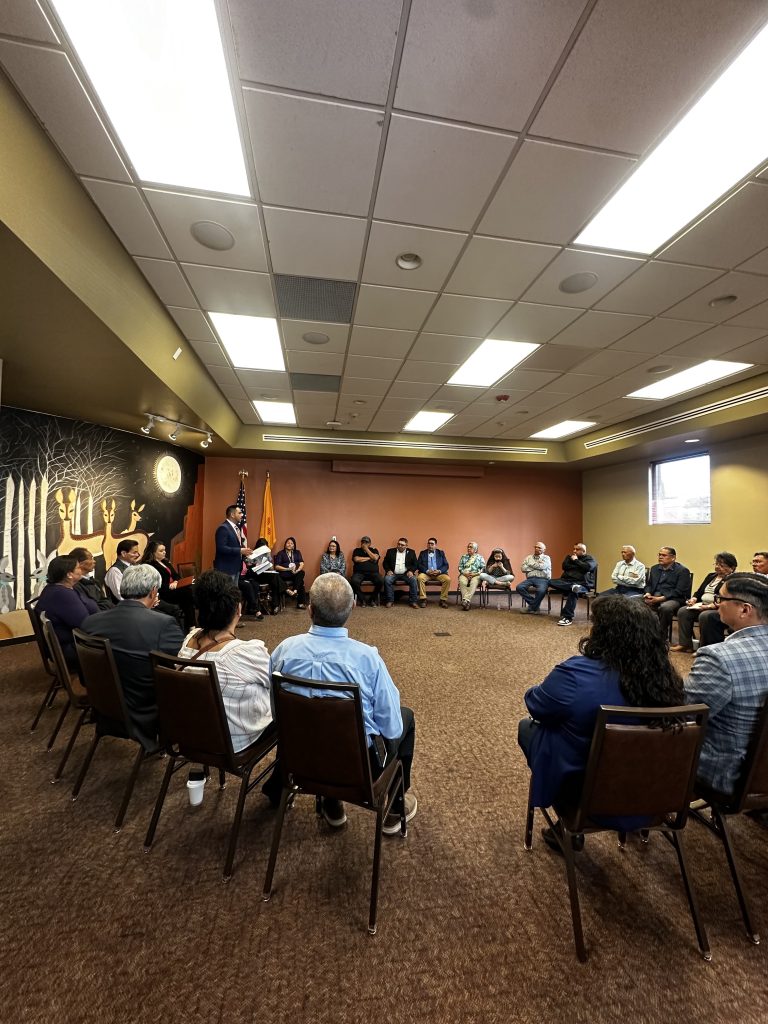A recent survey of 480 Hispanics in the state found that close to half have $1,000 or less in savings and nearly a quarter have $100 or less.
The survey from Latino Decisions, in partnership with several other nonprofit organizations, found that 49 percent of Hispanics surveyed have $1,000 or less set aside for emergencies and 24 percent have $100 or less in savings. In addition, 48 percent have had their hours or pay cut since the beginning of the COVID-19 pandemic.
A group of 45 elected officials, including some from the state’s three largest cities of Albuquerque, Santa Fe and Las Cruces as well as other cities and counties around the state, signed a letter sent to New Mexico’s congressional leadership Tuesday asking that all residents, regardless of immigration status, be included in the next federal relief bill. Migrants and refugees who lack social security numbers were left out of the federal relief CARES Act in late March. Both documented and undocumented refugees and migrants pay taxes, according to advocates.
In 2015, 4.35 million people paid more than $13.7 billion in net taxes using an Individual Tax Identification Number (ITIN), according to the American Immigration Council. ITIN are used by people who lack social security numbers due to their citizenship status.
Related: Immigrants left out
The survey, titled COVID-19’s Impact on Latino Families Economic Well-Being in New Mexico, included opinions from 165 immigrant families. The survey asked questions designed to give policymakers an idea of how Hispanic and Latino families in New Mexico are faring since the public health emergency began in mid-March. The survey was conducted in early to mid June. The survey found additional data, such as that 20 percent of Hispanic families have experienced someone in their household go through job loss since the pandemic began.
Also, 20 percent of Hispanic parents and primary caregivers have had to shut down a business or experienced a drop in revenue. Another 33 percent of Hispanic parents and primary care givers have struggled to pay rent or make their mortgage.
Related: A single mom in Albuquerque faces homelessness without rent relief
Some lawmakers tried to sound the alarm before the special legislative session in June because, they said, potentially thousands of renters could be unable to pay their rent by September. But legislators did not pass rent relief legislation.
Related: Legislators push to get bill heard on rent relief, thousands will be affected
When broken down, the smallest group – 6 percent – said they had $10,000 or more in savings. But the majority surveyed – 51 percent – had somewhere between $100 to $5,000 in savings.
The pandemic is on-going and cases are on the rise again in New Mexico and other states, such as nearby Arizona and Texas. Gov. Michelle Lujan Grisham held a press conference last week during which she said she was putting on hold lifting any additional restrictions because of the rise in cases. Officials in other states, including Arizona and Texas, have reversed some reopening policies due to the recent surge in confirmed COVID-19 cases.
Lujan Grisham also said last week that New Mexico may start to accept COVID-19 positive patients from other states as neighboring states’ hospital capacity becomes overwhelmed.
Related: Further reopening on pause as officials urge more widespread wearing of masks
During testimony before the U.S. Senate Health, Education, Labor and Pensions Committee Tuesday, the nation’s top infectious disease expert, Dr. Anthony Fauci, said there are 40,000 plus cases a day of COVID-19 currently and if this goes unaddressed, it could become 100,000 cases a day. He said he was “very worried.”
The Latino Decisions survey found that the largest number of those asked – 38 percent – have already used all or most of their savings. Another 24 percent have cut back on or postponed medical-related expenses and 24 percent have had to skip a vehicle or rent or mortgage payment.
For those who have been able to qualify for unemployment insurance, the $600 a week in funds from the federal CARES Act in addition to the state’s unemployment insurance, will run out on July 25.
The survey found that 18 percent borrowed money from a pay-day lender, which charges extremely high interest rates.
Nearly a quarter – 23 percent – lost their employer-based health insurance due to the public health emergency.
An effort by state legislators to pass a bill in the 2020 regular session that would have enabled the uninsured and underinsured to have a state-backed medical fund for aid failed to advance out of the Senate Finance Committee in February. According to the backers of that bill, there were about 190,000 people in New Mexico who were not insured. Of that, about 140,000 were not eligible for Medicaid and could use such a safety net. That was before the pandemic began in mid March.
Related: Insurance handout is coming, say backers of health fund bill that stalled
Of those who lost their insurance during the pandemic, 26 percent said their children lost insurance coverage as well, according to the report.
As far as the one-time $1,200 stimulus payment the federal government released to many families (there were some financial restrictions for upper income earners) in the spring, 30 percent polled said they never received the check and 40 percent said they didn’t receive the $500 additional funds per child.
The survey found 36 percent who were ineligible to receive Unemployment Insurance after a layoff or furlough.
For those who have not been laid off, the survey found that 49 percent are essential workers. That includes 31 percent who work in the healthcare industry and 20 percent who are first responders.
Professor Gabriel Sanchez, a political science professor at the University of New Mexico and a principal of Latino Decisions, said during an online presentation of the data that he hoped the survey would “shine a light” on the struggles Hispanic and Latino families are facing in New Mexico and he is calling for “remedial action from the federal and state government.”
Democratic Sen. Tom Udall’s staff responded to NM Political Report by saying through a statement that Udall has called for extending the cash assistance program Congress made available in the CARES Act to include migrant and refugee families who file taxes with an ITIN.
“Sen. Udall believes Republican efforts to leave out thousands and thousands of immigrants—many of whom are on the front lines in our fight against COVID-19—from Congressional relief are immoral, ineffective and detrimental to our efforts to stop this pandemic and the economic fallout,” Udall’s staff said through a statement.
Udall and Sen. Martin Heinrich, also a Democrat, were both part of a group of congressional leaders who asked for coronavirus testing and medical care and other “critical lifelines,” regardless of English-language proficiency or immigration status.
A proposed $3 trillion Health and Economic Recovery Omnibus Emergency Solutions (the HEROES Act) passed the House of Representatives in May but has yet to pass the Senate, despite support from many Democrats.
“It’s imperative that Congress pass legislation that takes a whole-of-society approach and includes our immigrant communities. Unfortunately, I fear it is unlikely that we will have a productive path forward on these urgent matters with President Trump in the White House and Senator Mitch McConnell controlling the Senate Floor,” Heinrich said through an emailed statement to NM Political Report.
The House bill offers $1,200 in a second round of stimulus checks and would be available regardless of immigration status. Rep. Deb Haaland, also a Democrat, delivered the Democratic weekly address just before the House vote on the HEROES Act.
Haaland said she knows what it’s like to live on the edge.
“Everyone in our country deserves the tools and resources to weather the economic impacts of this public health emergency, but we’re fighting an Administration and Republican leadership in the Senate that actively tries to exclude people in our communities from the relief they need. This pandemic has magnified all of the inequities and disparities that existed before coronavirus. The Heroes Act that the House Passed includes relief all families regardless of immigration or tax status, age or ability,” Haaland said through a statement to NM Political Report.

Latino Decisions conducted the poll between June 4-12, which included online surveys and live telephone interviews conducted via landlines and cell phones. The survey was available in both English and Spanish. It carries an overall +/- 4.4 percent margin of error, with larger margins for sub-samples.
Update: Rep. Deb Haaland’s statement.






















